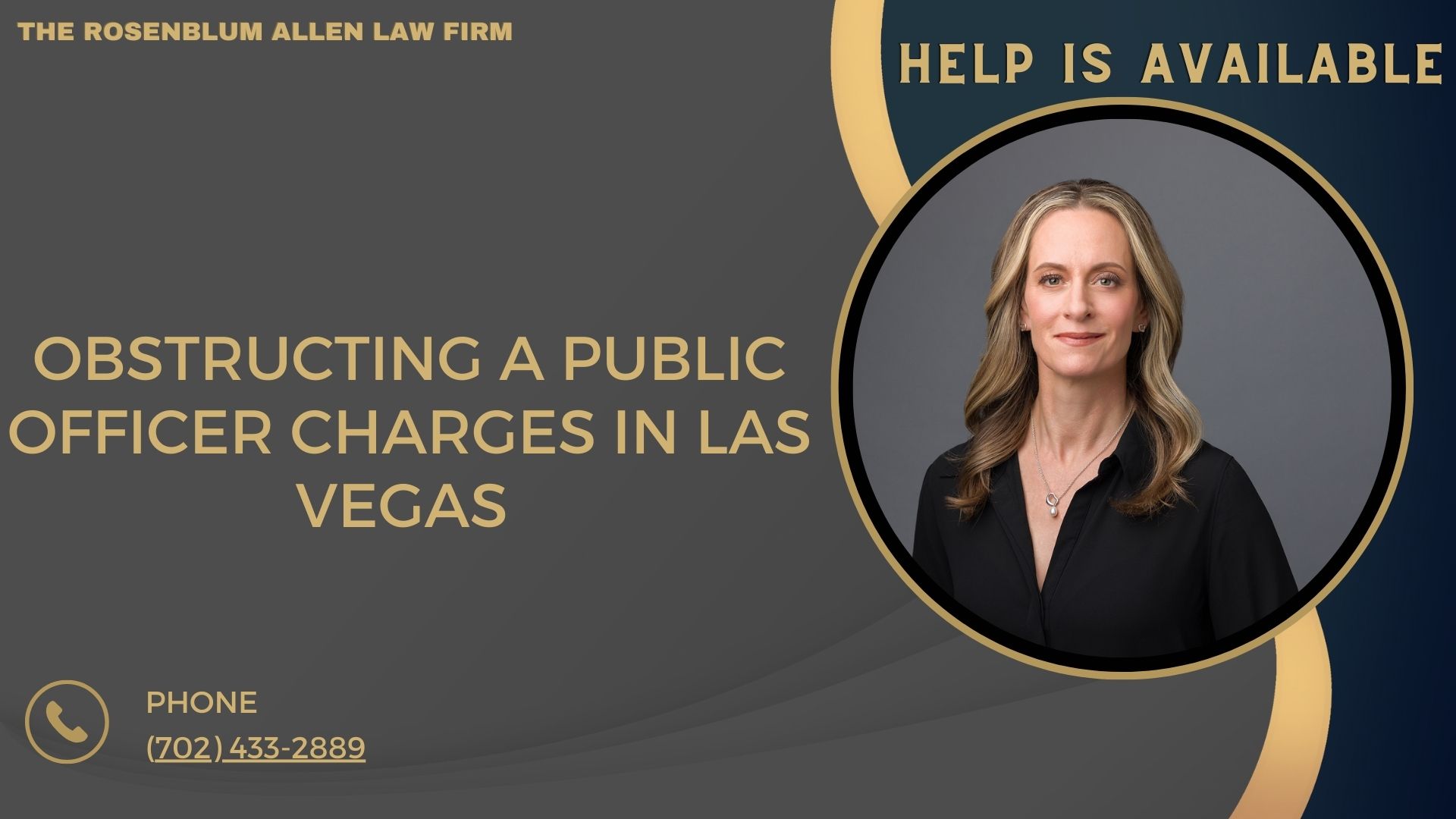What Does It Mean to Obstruct a Public Officer in Las Vegas?
Obstructing a public officer refers to actions that interfere with a public official or law enforcement officer while performing their duties. Under Nevada law, obstructing a public officer is a criminal offense that can result in both misdemeanor and felony charges, depending on the circumstances of the case.Definition of Obstructing a Public Officer Under Nevada Law
Nevada law broadly defines “obstruction” as a variety of acts that hinder or delay a public officer’s ability to carry out their duties. These duties can include conducting a lawful investigation, making an arrest, or executing a legal order, such as a search warrant. Obstruction charges may involve law enforcement officers, but they can also apply to other public officials, such as emergency responders, code enforcement officers, or city inspectors.Explanation of “Obstruction” and Its Application to Law Enforcement, Public Officers, and Other Officials
Obstruction is generally understood as any behavior that intentionally prevents or interferes with the lawful duties of a public officer. This can include both active and passive interference. Some examples include:- Physically blocking an officer’s path.
- Providing false identification.
- Preventing an officer from performing their duties at a crime scene.
- Police officers
- Firefighters
- Paramedics and emergency medical technicians (EMTs)
- Regulatory agency officers
- Court officers or sheriffs executing a warrant
Legal Elements of Obstructing a Public Officer Charge
Certain legal elements must be present for a charge of obstructing a public officer to stand. Understanding these elements is crucial for both defendants and legal practitioners who want to challenge or defend such charges.Key Components That Make Up the Charge of Obstruction
To secure a conviction, prosecutors must demonstrate that the accused intentionally obstructed or delayed a public officer’s lawful duties. The key elements include:- Intentionality: The accused must have intentionally acted to interfere with the officer’s duties. Accidental or unintentional actions do not typically constitute obstruction.
- Obstruction: The conduct in question obstructed, hindered, or delayed the public officer from performing their duties.
- Public Officer’s Duty: The officer involved must have been performing their lawful duties, such as conducting an investigation, arresting an individual, or executing a legal order like a search warrant.
Examples of Actions That May Lead to Obstruction Charges in Las Vegas
Several actions can lead to obstruction charges in Las Vegas, including but not limited to:- Physically preventing an officer from entering a location: This could involve standing in the way of a law enforcement officer trying to access a property where they have a legal right to be.
- Falsely identifying oneself to an officer: Giving an officer false identification or lying about one’s identity can hinder the officer’s investigation or lead to confusion during an arrest.
- Interfering with the arrest process: If a person physically resists or tries to stop an officer from arresting someone, this could be considered obstruction.
The Difference Between Obstructing and Resisting Arrest
It’s important to distinguish between the offenses of obstruction and resisting arrest. While both charges involve interference with law enforcement officers, resisting arrest typically involves direct physical resistance to an officer’s attempt to arrest someone. At the same time, obstruction can be broader, encompassing actions that disrupt the officer’s ability to perform any aspect of their duty. For example:- Resisting Arrest: Actively fighting with, fleeing from, or physically struggling against an officer.
- Obstructing a Public Officer: Providing false information, standing in the way of officers trying to perform a search, or blocking an officer’s ability to carry out a legal order.
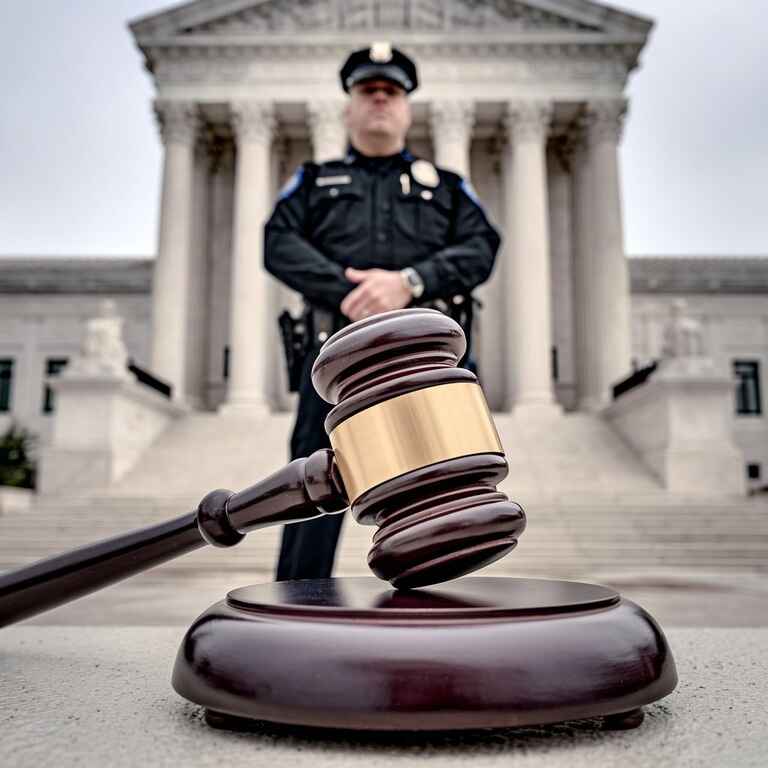
Penalties for Obstructing a Public Officer in Las Vegas
Obstructing a public officer in Las Vegas can lead to serious legal consequences. The penalties depend on various factors, including whether the charge is classified as a misdemeanor or a felony. Here’s what you need to know about the potential penalties.Misdemeanor vs. Felony Obstruction Charges
In Las Vegas, the severity of the obstruction charge will dictate the penalties. The charge may either be a misdemeanor or a felony.- Misdemeanor Obstruction:
- This is the most common form of obstruction charge.
- If convicted, the penalties can include:
- A fine of up to $1,000.
- Jail time of up to 6 months.
- Probation or community service may also be part of the sentence.
- Felony Obstruction:
- This charge is more severe and occurs when the obstruction involves significant harm or occurs during a felony investigation or arrest.
- Convictions for felony obstruction can result in:
- A prison sentence ranging from 1 to 4 years.
- A fine of up to $5,000.
- Additional charges can compound the penalties, increasing the severity of the outcome.
Potential Fines, Jail Time, and Other Legal Consequences
The legal consequences of obstructing a public officer extend beyond fines or jail time. Here’s a breakdown of the possible penalties for each type of charge: Charge TypeFineJail TimeAdditional Penalties Misdemeanor Up to $1,000 Up to 6 months Probation, community service Felony Up to $5,000 1 to 4 years in prison Additional charges, parole restrictions These penalties can vary depending on the specifics of your case, including whether the obstruction caused any harm or involved other criminal acts like assault.Impact on Your Criminal Record and Future Opportunities
Being convicted of obstructing a public officer can have long-term effects on your life. A criminal conviction stays on your record, impacting your future job prospects, travel, and even your ability to rent a home.- Job Opportunities: Employers often perform background checks. A conviction for obstruction could make it harder to get hired.
- Travel Restrictions: Certain countries may deny entry to individuals with criminal records, particularly felonies.
- Civil Rights: A felony conviction can impact your rights, including the right to vote or own firearms in some cases.
Defenses Against Obstructing a Public Officer Charge
Knowing that you may not automatically be guilty is essential if you are facing obstruction charges. Several defenses can help challenge the accusation and reduce or dismiss the charges.Lack of Intent or Knowledge of Obstruction
In many obstruction cases, intent plays a key role. You may have a solid defense if you didn’t intentionally block or interfere with a public officer.- Lack of Intent: You may not have meant to obstruct the officer, even if your actions were misunderstood. For instance, if you were simply confused or scared and acted in a way that wasn’t intended to interfere, it might not constitute obstruction.
- Unaware of the Officer’s Duties: If you didn’t know the person was a public officer or didn’t realize they were performing their duties, you could argue that you weren’t intentionally obstructing them.
False Accusations or Misunderstandings of the Situation
Sometimes, individuals are falsely accused of obstruction. In these cases, proving that you did not engage in any obstructive behavior is essential. Your defense might involve:- Eyewitness testimony: People present during the incident can testify that you didn’t interfere.
- Video evidence: If video footage exists, it can show that you didn’t obstruct the officer’s actions.
Self-Defense or Defense of Others in Certain Scenarios
If you acted in self-defense or to protect someone else, this could serve as a valid defense against obstruction. For instance, if a police officer’s actions were unjustified or overly aggressive, and you intervened to protect yourself or others, your actions may not be considered obstructive.- Self-Defense: If you reasonably believed that you or someone else was in immediate danger, you may have acted in a way that appeared obstructive but was self-defense.
- Defense of Others: Similarly, protecting someone else from harm could justify your actions, even if they appeared to obstruct the officer.
Challenging the Legality of the Officer’s Actions
A key aspect of defending obstruction charges is challenging the legality of the officer’s actions. If the officer were not performing their duties within the scope of the law, then their request or command could be invalid, and obstruction would not apply. For example:- Illegal Search or Seizure: If the officer performed an unlawful search or seizure and you obstructed them, your actions could be justified.
- Unlawful Detention: If you were unlawfully detained or arrested, obstructing the officer could be seen as protecting your rights.
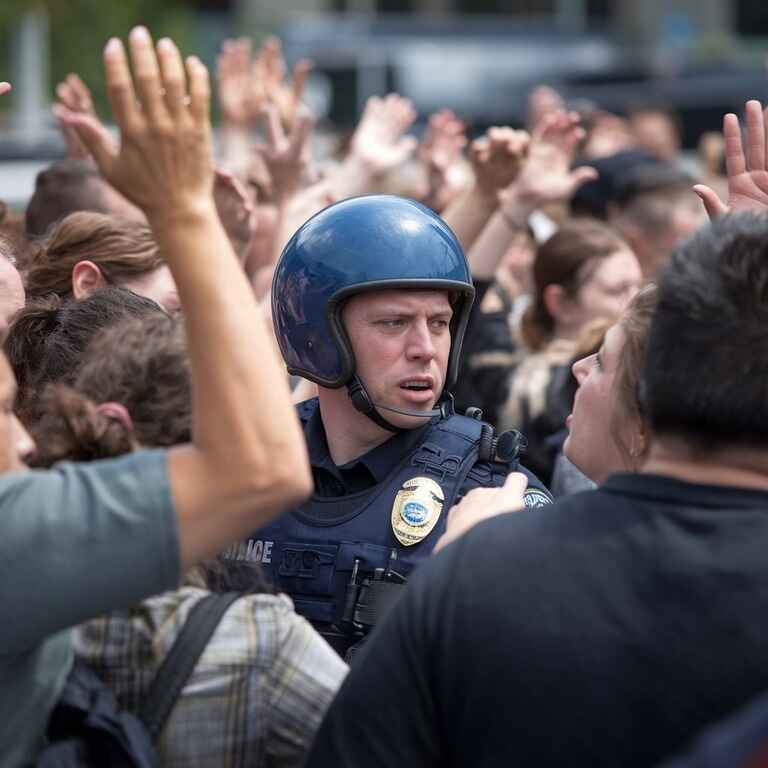
Common Scenarios That Lead to Obstructing Public Officer Charges
Obstruction charges can arise in a variety of situations. While every case is unique, some common scenarios are more likely to lead to these charges in Las Vegas. Understanding these scenarios can help you know what actions to avoid.Interfering with a Police Officer During an Investigation or Arrest
One of the most common scenarios where obstruction charges arise is during a police investigation or arrest. You may be charged with obstruction if you prevent, hinder, or delay an officer’s ability to perform their duties. Examples include:- Blocking an officer’s path: If a police officer tries to enter a property or approach a suspect, standing in their way could be seen as obstruction.
- Refusing to allow an officer to perform their job: If an officer is trying to question or search your property and you refuse to cooperate, this could be considered obstruction.
Refusing to Provide Identification to a Public Officer
Under Nevada law, you may be required to provide identification to certain public officers, especially law enforcement, under specific circumstances. Refusing to provide identification can obstruct the officer’s ability to do their job. For example:- Traffic stops: If you are pulled over by a police officer, refusing to provide your driver’s license or other required information could lead to obstruction charges.
- Failure to comply with an officer’s request: If an officer asks for your ID during a lawful investigation and refuses, you could be charged with obstruction.
Resisting Attempts to Serve a Legal Order
Public officers often have the authority to serve legal orders, such as arrest warrants or search warrants. Resisting or interfering with serving these orders can lead to obstruction charges. Examples include:- Blocking access to your property: If police officers are executing a search warrant and you block their entry, you could face obstruction charges.
- Interfering with an arrest: If an officer attempts to arrest someone and you try to stop or delay the process, you may be charged with obstruction.
Preventing Public Officers from Performing Their Duties at a Crime Scene
Obstruction charges can also occur if you hinder a public officer’s ability to perform their duties at a crime scene. Whether you are directly involved in the incident or just a bystander, interfering with law enforcement at a crime scene can be seen as obstruction. This can include:- Tampering with evidence: You may face obstruction charges if you touch or move proof that an officer is investigating.
- Disrupting the investigation: If you cause a disturbance or refuse to cooperate with officers while they are investigating a crime scene, you can be charged with obstruction.
How to Respond if You Are Charged with Obstructing a Public Officer
Being charged with obstructing a public officer can be overwhelming, but how you respond can significantly impact your case. There are essential steps you can take to protect yourself and your rights.Importance of Staying Calm and Compliant During an Arrest
If you are arrested or confronted by a public officer, remaining calm and cooperative is critical. While you may feel frustrated or scared, acting out can escalate the situation and lead to additional charges, including obstruction.- Stay calm: Take a deep breath and remain as composed as possible.
- Be polite and respectful: Even if you disagree with the officer, maintaining a respectful demeanor can help avoid worsening the situation.
- Don’t resist: If you are being arrested, resist the urge to fight back or run physically. Resisting can lead to more severe charges, including resisting arrest.
What to Do If You Are Accused of Obstruction but Believe You Are Innocent
If you believe you were falsely accused of obstructing a public officer, taking immediate action is essential to protect your rights. Here’s what you should do:- Stay calm: Just like during an arrest, keep your cool. Avoid arguing with the officer at the scene.
- Gather evidence: If possible, try to collect evidence that supports your innocence. This could include:
- Witness testimony from people who were present during the incident.
- Any video footage or photographs that show what happened.
- Consult an attorney: Contact an experienced criminal defense attorney immediately. They can help you understand the charges and build a strong defense.
Steps to Take Immediately Following Your Arrest
If you are arrested on charges of obstructing a public officer, take the following steps to protect your rights and prepare for your case:- Ask for a lawyer: When you are arrested, request an attorney. You have the right to legal representation.
- Only speak with a lawyer present: It’s essential to remain silent and not talk to the police without your attorney. Anything you say could be used against you.
- Document the details of the arrest: Write down everything you remember about the arrest as soon as you can. This includes the officer’s actions, your interactions, and any details that could help your defense.
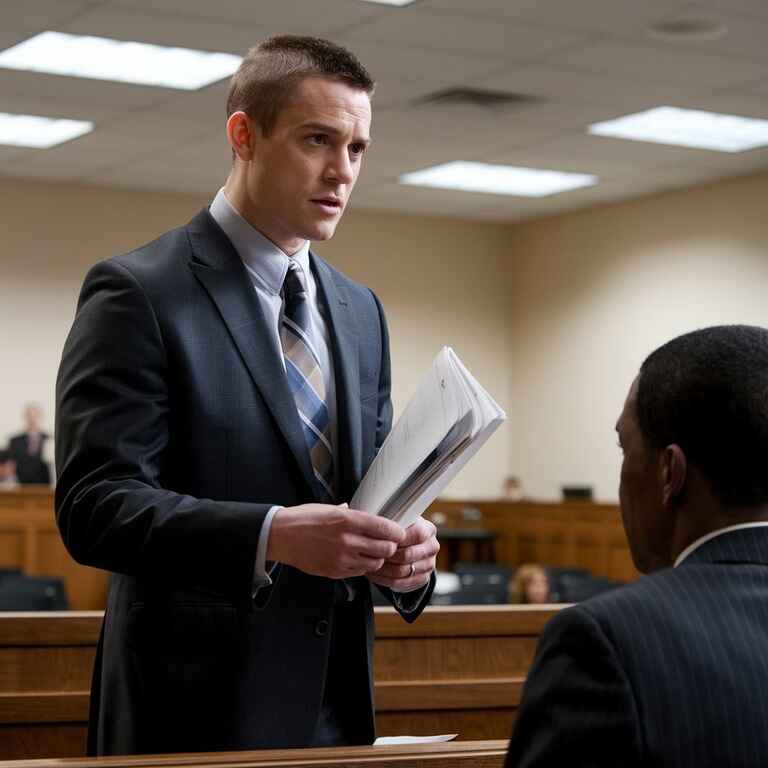
The Role of a Criminal Defense Attorney in Obstructing a Public Officer Cases
If you’re facing charges of obstructing a public officer, having an experienced criminal defense attorney on your side can make a huge difference. An attorney can guide you through the legal process and fight for the best possible outcome.How an Attorney Can Help You Build a Strong Defense
A criminal defense attorney can analyze your case from all angles and help build a defense that challenges the prosecution’s case. Here’s how they can assist:- Review the evidence: Your attorney will carefully examine all the evidence presented by the prosecution, including police reports, witness statements, and any physical evidence. They will look for inconsistencies or gaps that could work in your favor.
- Identify legal issues: Your lawyer will identify any legal issues or errors that could weaken the prosecution’s case, such as an unlawful arrest, improper procedure, or lack of sufficient evidence.
- Assess potential defenses: Your attorney will help determine if any valid defenses, such as mistaken identity, lack of intent, or unlawful actions by the officer, can be used to challenge the charge.
- Negotiating for reduced charges: In some cases, your attorney can negotiate with the prosecutor to reduce the charge or reach a plea deal, potentially resulting in a lesser penalty.
What to Expect During Your Defense Process
The defense process can be lengthy and complex, but understanding what to expect will help you stay prepared and informed. Here’s an overview of what the process may look like:- Initial consultation: The first step is to meet with your attorney for a consultation. During this meeting, you will discuss the details of your case, the charges against you, and your options moving forward.
- Investigation: Your attorney will investigate the circumstances surrounding the obstruction charge. This includes speaking to witnesses, reviewing video footage, and gathering evidence supporting your case.
- Pre-trial motions: Before the trial begins, your attorney may file motions to suppress evidence or dismiss the charges, depending on the specifics of your case.
- Trial or plea negotiations: If the case goes to trial, your attorney will present your defense and cross-examine witnesses. In many cases, however, your attorney will negotiate a plea deal with the prosecution to avoid trial and secure a lesser charge or sentence.
The Importance of Legal Representation Early in the Process
It’s essential to seek legal representation when you’re charged with obstructing a public officer. The earlier your attorney gets involved, the better they can protect your rights and start working on your defense.- Early intervention can help reduce penalties: The sooner your attorney is involved, the more likely they are to help negotiate a favorable outcome before the case escalates.
- Preventing mistakes: Legal procedures are complicated, and mistakes made early could negatively affect your case. An experienced attorney will ensure that everything is done correctly from the start.
- Gathering evidence: The sooner your attorney begins their investigation, the more time they have to collect substantial evidence, interview witnesses, and uncover critical facts that could work in your favor.
Potential Penalties for Obstructing a Public Officer in Las Vegas
Obstruction of a public officer is taken seriously in Las Vegas. The penalties for such a charge can vary depending on several factors, including the circumstances of the case and whether you have a prior criminal record. Understanding the potential consequences is essential in preparing your defense and knowing what to expect.Possible Criminal Penalties for Obstruction Charges
Under Nevada law, obstructing a public officer can result in criminal penalties that range from fines to jail time. The severity of the punishment largely depends on the specific charge and whether any aggravating factors exist.- Misdemeanor charges: In many cases, obstructing a public officer is classified as a misdemeanor offense. A misdemeanor charge can lead to:
- A fine of up to $1,000
- Up to 6 months in jail
- Probation instead of jail time, depending on the case’s details
- Felony charges: In more severe cases, obstruction may be charged as a felony, especially if the obstruction involved violence or resulted in harm to an officer. Felony penalties may include:
- Fines up to $10,000 or more
- Several years in prison (depending on the offense)
- Probation, community service, or a combination of both
Aggravating Factors That Can Increase Penalties
Certain factors can increase the severity of the penalties you face if convicted of obstructing a public officer. These may include:- Use of force: If you physically resist arrest or use force to prevent an officer from performing their duties, the penalties could be more severe.
- Previous criminal record: A history of criminal convictions may lead to harsher penalties, especially if you have prior charges for obstruction or similar offenses.
- The nature of the officer’s work: Penalties could be elevated if the public officer was a law enforcement officer or another government official performing an essential duty (such as responding to a crime or an emergency).
- If you’re facing a felony charge, it’s essential to consult with an attorney who can explain the potential penalties and help develop a strategy for your case.
Collateral Consequences of a Conviction
In addition to the direct legal penalties, a conviction for obstruction of a public officer can have long-term consequences. These consequences may include:- Criminal record: A conviction will likely result in a permanent criminal record, affecting future employment opportunities, housing, and even your right to vote or own firearms.
- Loss of professional licenses: Certain professions require a clean criminal record. If you hold a professional license, a conviction could lead to disciplinary action, including suspension or revocation.
- Immigration consequences: Non-citizens may face deportation or other immigration issues if convicted of obstruction.
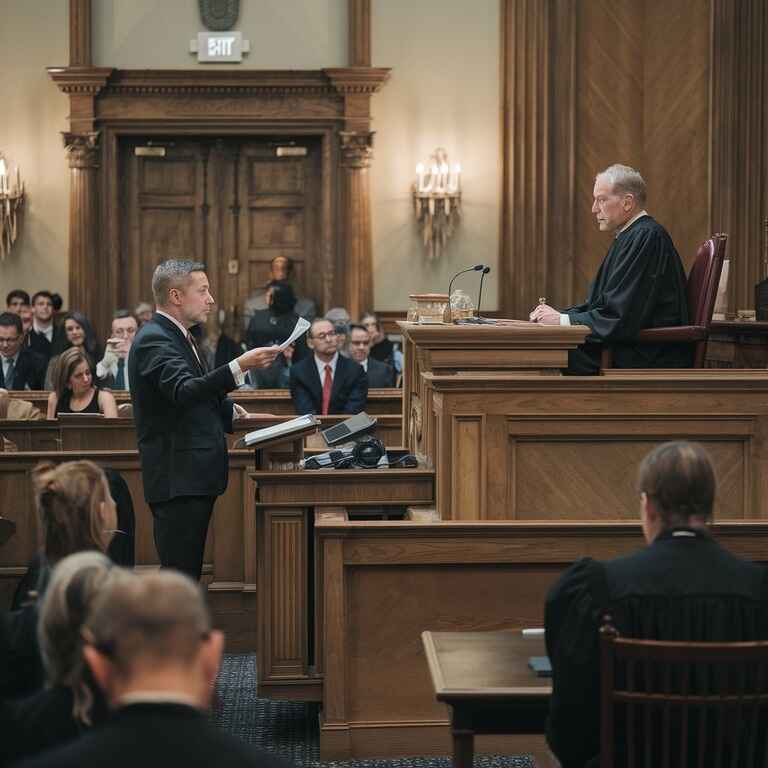
Defenses to Obstructing a Public Officer Charges
Being accused of obstructing a public officer is serious, but it doesn’t mean you’re automatically guilty. Various defenses may apply to your case, and an experienced criminal defense attorney can help you determine which strategy is best for you.Common Defenses Used in Obstruction Cases
Depending on the facts of your case, your attorney may use one or more of the following defenses:Lack of Intent
For a conviction, prosecutors must prove that you intentionally obstructed a public officer. This could be a valid defense if you didn’t intend to interfere with an officer’s duties. For example:- If you were confused or didn’t realize you were obstructing the officer.
- If your actions were accidental, such as moving in a way that unintentionally hindered the officer without malice or intent.
Unlawful Actions by the Officer
If the officer’s actions were unlawful or outside their scope of authority, you may argue that you were justified in resisting or obstructing them. This could include:- Unlawful arrest: If the officer did not have the proper legal grounds for making an arrest or detaining you, your defense may focus on the officer’s unlawful actions.
- Excessive use of force: If the officer used excessive force, it may be argued that you acted in self-defense or to protect your rights.
Mistaken Identity
Sometimes, you may be wrongly accused of obstruction. If you were mistaken for someone else, or if there was a misunderstanding, your defense could be based on the fact that you weren’t the one who obstructed the officer.Lack of Probable Cause
In some cases, there may not have been probable cause for the officer’s actions in the first place. If the officer engaged in unlawful conduct or violated your rights during their investigation or arrest, this could be used as a defense.Importance of a Strong Defense Strategy
The strength of your defense will depend on the details of your case. An experienced attorney will evaluate the evidence, interview witnesses, and explore all possible avenues for your defense. By working with a skilled criminal defense lawyer, you can increase the likelihood of a favorable outcome, whether that means dismissal of charges, a reduction in penalties, or an acquittal at trial. Keep your case to chance if you’ve been charged with obstructing a public officer. Contact a lawyer who can help you navigate the legal complexities and fight for your rights.How to Avoid Obstructing Public Officer Charges
While you may not always be able to predict when you will interact with law enforcement, there are steps you can take to avoid putting yourself in a situation where you might face obstruction charges.Tips for Interacting with Law Enforcement
Knowing how to handle interactions with law enforcement officers is essential to avoid obstruction charges. Here are some practical tips:- Stay calm and respectful: Even if you disagree with an officer’s actions, staying calm and respectful will help prevent the situation from escalating. Rudeness or hostility can lead to further complications, including obstruction charges.
- Follow lawful orders: If an officer gives you a lawful command, such as providing identification during a traffic stop, it’s essential to comply. Refusing to follow lawful orders can result in obstruction charges.
- Know your rights: While cooperating is essential, you also have the right to remain silent and to request legal representation. If you feel your rights are being violated, calmly assert them without physically resisting.
- Avoid unnecessary confrontation: If an officer questions you or performs their duties, avoid becoming confrontational. Arguing with law enforcement can increase tensions and potentially lead to charges.
Understanding When You Can Legally Resist
There are times when resisting an officer’s actions is justified. For example:- Unlawful search or seizure: If an officer is violating your constitutional rights, such as conducting an illegal search, you may be able to resist in certain circumstances. However, it’s crucial to remember that even if you feel an officer is acting unlawfully, physical resistance can lead to severe consequences, including obstruction charges.
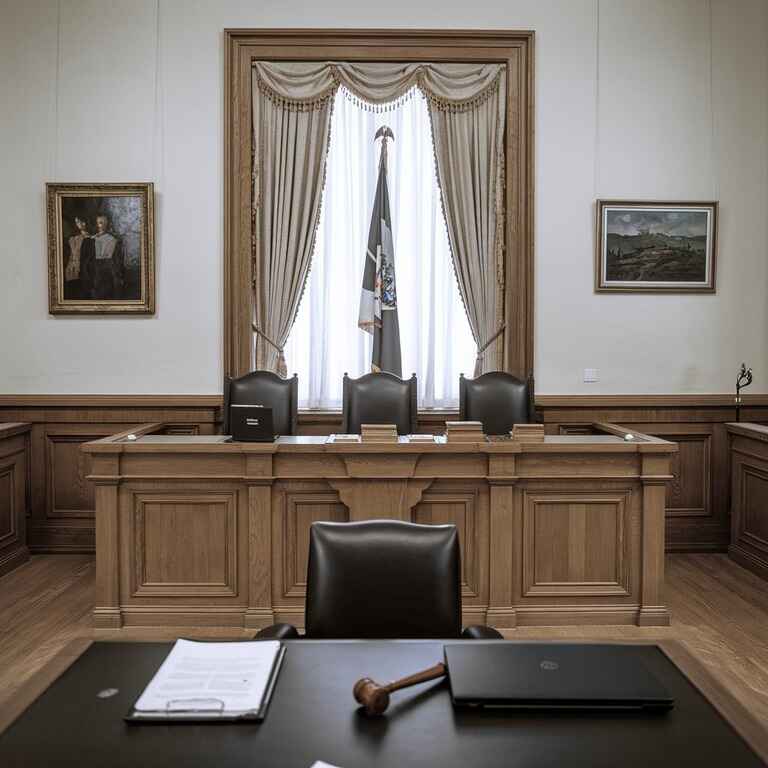
Breaking It All Down
Facing charges of obstructing a public officer can be intimidating, but it’s important to remember that you have legal rights. Understanding the law and the potential penalties and working with a skilled criminal defense attorney can make all the difference. At the Rosenblum Allen Law Firm, we specialize in defending clients charged with criminal offenses, including obstruction. We’re here to help guide you through the legal process and fight for the best possible outcome in your case. If you’ve been charged with obstructing a public officer in Las Vegas, don’t hesitate to contact us for a consultation. We’ll listen to your side of the story, explain your options, and help you confidently navigate this challenging time.
Frequently Asked Questions
What is the difference between obstruction of a public officer and resisting arrest?
- Obstruction generally involves interfering with an officer’s duties, such as hindering an investigation or preventing them from carrying out their responsibilities. It can be physical or verbal.
- Resisting arrest, on the other hand, typically refers to physically resisting an officer’s attempt to arrest you, even if you are not guilty.
Can obstruction charges be dropped?
Yes, obstruction charges can be dropped in certain situations. The case may be dismissed if there’s insufficient evidence or the prosecution cannot prove that you intentionally obstructed the officer. Your attorney can work to gather evidence or present a defense that might lead to charges being dropped.
Will an obstruction conviction affect my job?
Yes, an obstruction conviction could affect your job, primarily if you work in a field where a clean criminal record is necessary (like law enforcement, teaching, or healthcare). It could also impact future job prospects, as potential employers may view a criminal conviction negatively.
What should I say to law enforcement if I’m arrested for obstruction?
If you’re arrested for obstruction, it’s crucial to remain calm. You have the right to remain silent and the right to an attorney. Politely exercise these rights by saying, “I would like to speak with my attorney.” Avoid discussing the case with law enforcement, as anything you say could be used against you.
Can I be arrested for obstructing an officer without knowing it?
Yes, it’s possible to be charged with obstruction without intending to do so. For example, if you were unaware that your actions interfered with an officer’s duties, this could be a factor in your defense. Your attorney will work to prove that your actions were not intentional.

Glossary
Obstruction of a Public Officer
A criminal offense in which an individual intentionally interferes with, resists, or obstructs a public officer in the performance of their duties. This can include physical actions, verbal interference, or failing to comply with lawful orders.
Public Officer
A person who works for the government, such as a law enforcement officer, public safety official, or any other government employee performing official duties. Public officers are responsible for enforcing the law and protecting the public.
Misdemeanor
A less severe criminal charge than a felony. Misdemeanors are punishable by fines or short-term jail sentences, typically less than one year. Obstructing a public officer may be classified as a misdemeanor depending on the circumstances.
Felony
A more serious crime that can result in long-term imprisonment, fines, or both. Felony convictions often carry more severe penalties than misdemeanors, including lengthy prison sentences, depending on the nature of the offense.
Probable Cause
The legal standard that law enforcement must meet before making an arrest, conducting a search, or pressing charges. Probable cause requires that an officer has reasonable grounds to believe that a crime has been, is being, or will be committed.
Physical Resistance
The act of using force to oppose an officer’s attempt to arrest or detain you. This can include actions like pushing, hitting, or fleeing from the officer.
Unlawful Arrest
An arrest made without legal grounds or without proper authorization. If an officer arrests someone without probable cause or violates the individual’s rights in the process, the arrest may be considered unlawful.
Excessive Force
When law enforcement officers use more physical force than necessary to control a situation. If an officer’s actions are deemed unreasonable or unnecessary, this can lead to allegations of misconduct and may be used in a defense against obstruction charges.
Criminal Record
A permanent record of an individual’s criminal history, which includes any convictions or arrests. A criminal record can have long-term consequences, affecting employment opportunities, housing, and more.
Plea Deal
An agreement in which a defendant agrees to plead guilty to a lesser charge or to receive a reduced sentence in exchange for cooperation with the prosecution or other conditions.
Self-Defense
The right to use reasonable force to protect oneself from harm. This can sometimes be used as a defense if an officer used excessive force or violated a person’s rights during an arrest.
Probation
A court-ordered period of supervision instead of jail time. If you’re convicted of a crime, probation may be granted as an alternative to imprisonment, with conditions like regular check-ins, community service, or restrictions on travel.
Public Safety Officer
A law enforcement officer, firefighter, or emergency medical worker who is responsible for protecting public safety. Obstructing a public safety officer could result in more serious penalties if their duties were impaired.
Restitution
A requirement to pay money to a victim or to the state as compensation for damage or loss caused by a crime. Restitution is typically part of a sentence after a conviction.
Criminal Defense Attorney
A lawyer who specializes in defending individuals charged with criminal offenses. A criminal defense attorney works to protect their client’s rights, build a defense, and ensure the best possible outcome in court.
Resisting Arrest
The act of physically preventing an officer from detaining you or carrying out an arrest. While resisting arrest is a separate charge, it can sometimes overlap with obstruction if it interferes with an officer’s duties.
Witness Testimony
The statements given by individuals who have knowledge of the events in question. Witnesses may be called to testify in court to provide evidence that supports the defense or the prosecution’s case.
Exculpatory Evidence
Evidence that supports a defendant’s innocence or shows that the defendant did not commit the crime in question. Exculpatory evidence can lead to charges being dropped or a not guilty verdict.
Bail
Money paid to the court as a guarantee that a defendant will appear for their scheduled court hearings. Bail allows the defendant to be released from jail before their trial.
Indictment
A formal accusation that someone has committed a crime. In criminal cases, an indictment is typically issued by a grand jury after reviewing evidence presented by the prosecution.
Plea Bargain
A negotiated agreement between the defense and prosecution where the defendant agrees to plead guilty to a lesser charge or receive a reduced sentence in exchange for certain concessions, like cooperation.
These terms should provide clarity and help you navigate the legal landscape surrounding obstructing a public officer charges in Las Vegas. If you’re ever in doubt about any legal terms, an attorney can help explain them in detail.

Additional Resources for You
Molly Rosenblum, Esq., our lead attorney, has extensively contributed to creating a wealth of resources aimed at providing crucial support and legal guidance across a broad spectrum of criminal defense areas. These resources, accessible through the Rosenblum Law website, are meticulously designed to offer in-depth insights, legal advice, and practical tips for individuals facing criminal charges. Here is a detailed overview of the resources that Molly Rosenblum, Esq. has made available to assist you during challenging times:
Criminal Defense Attorneys: A comprehensive guide offering expert defense strategies and support for a wide range of criminal charges. Explore the guide.
Las Vegas DUI Lawyer: Specialized legal advice and representation for those facing DUI charges in Las Vegas, aiming to navigate the complexities of DUI law. Learn more.
Domestic Violence Lawyer Las Vegas: Tailored support for individuals accused of domestic violence, providing legal strategies to address the charges. Discover your options.
Drug Possession Lawyer: Expert legal assistance for drug possession charges, focusing on defense tactics and rights protection. Find legal support.
Sex Crimes Attorney: Specialized defense for those accused of sex crimes, offering confidential and robust legal representation. Get confidential help.
CPS Defense Attorney: Defense services for cases involving child protective services, including child abuse and neglect allegations. Protect your rights.
Misdemeanor Lawyer: Legal advice and representation for misdemeanor charges, focusing on minimizing the impact on the accused’s life. Seek representation.
Juvenile Defense Lawyers: Dedicated legal services for juveniles facing criminal charges, aiming to protect their future and rights. Explore juvenile defense.
Las Vegas Warrant Defense Attorney: Assistance with resolving outstanding warrants and minimizing the legal consequences. Address your warrant.
Las Vegas Probation Violation Attorney: Legal strategies to address probation violations, aiming to prevent severe penalties. Navigate probation issues.
Theft Crime Defense Lawyer: Defense tactics for individuals accused of theft, focusing on case dismissal or charge reduction. Defend against theft charges.
Kidnapping Lawyers: Legal support for kidnapping charges, providing a defense aimed at protecting the accused’s rights and freedom. Get expert defense.
Firearms Lawyer Las Vegas: Guidance and representation for firearms-related charges, ensuring lawful rights are protected. Learn about firearms defense.
Through these resources, Molly Rosenblum, Esq. aims to empower individuals facing criminal charges with the knowledge and support necessary to navigate the legal system effectively. We encourage you to utilize these resources to gain a better understanding of your rights and options.

Offsite Resources for You
Here are some additional offsite resources that may be helpful for readers interested in the legal topics discussed:
Justia: A comprehensive resource for various legal topics, including criminal law, juvenile cases, and drug-related offenses. They also provide a directory of attorneys across the United States.
Nolo: This site offers easy-to-understand legal information on a wide range of topics, including criminal defense and family law.
American Bar Association (ABA): The ABA provides a wealth of resources on legal topics, including articles, guides, and directories of legal professionals.
FindLaw: Another valuable resource for legal information, covering topics like criminal law, family law, and more. They also provide a directory of attorneys.
Avvo: Avvo offers a directory of lawyers, legal guides, and a Q&A section where legal questions can be asked and answered.
Legal Information Institute (LII) from Cornell Law School: The LII provides free access to important legal information and resources, including the U.S. constitution, supreme court opinions, and more.
National Association of Criminal Defense Lawyers (NACDL): The NACDL offers resources on criminal defense, including articles, legal education resources, and advocacy programs.
Why You Haven't Already Hired a Defense Attorney to Help You
Watch this short video to take the next big step toward defending your rights against your felony charge.


Dear Reader,
Thank you so much for taking the time to read through our resources on Obstructing a Public Officer.
We’ve provided valuable and accurate information to help you better understand the legal complexities surrounding this matter.
As you navigate these challenging times, please remember you’re not alone.
Legal situations can be overwhelming and confusing, but having experienced professionals by your side can make a significant difference.
I invite you to schedule a free consultation with our team at The Rosenblum Allen Law Firm.
We’re dedicated to offering you the best legal advice and representation tailored to your unique situation.
You can reach us at (702) 433-2889. We’re here to listen, understand, and help you through this process.
Exploring your options with a legal professional can provide clarity and reassurance, and we are committed to helping you every step of the way.
Thank you once again for considering The Rosenblum Allen Law Firm.
I look forward to the opportunity to serve you.
Best regards,
Molly Rosenblum, Esq.


